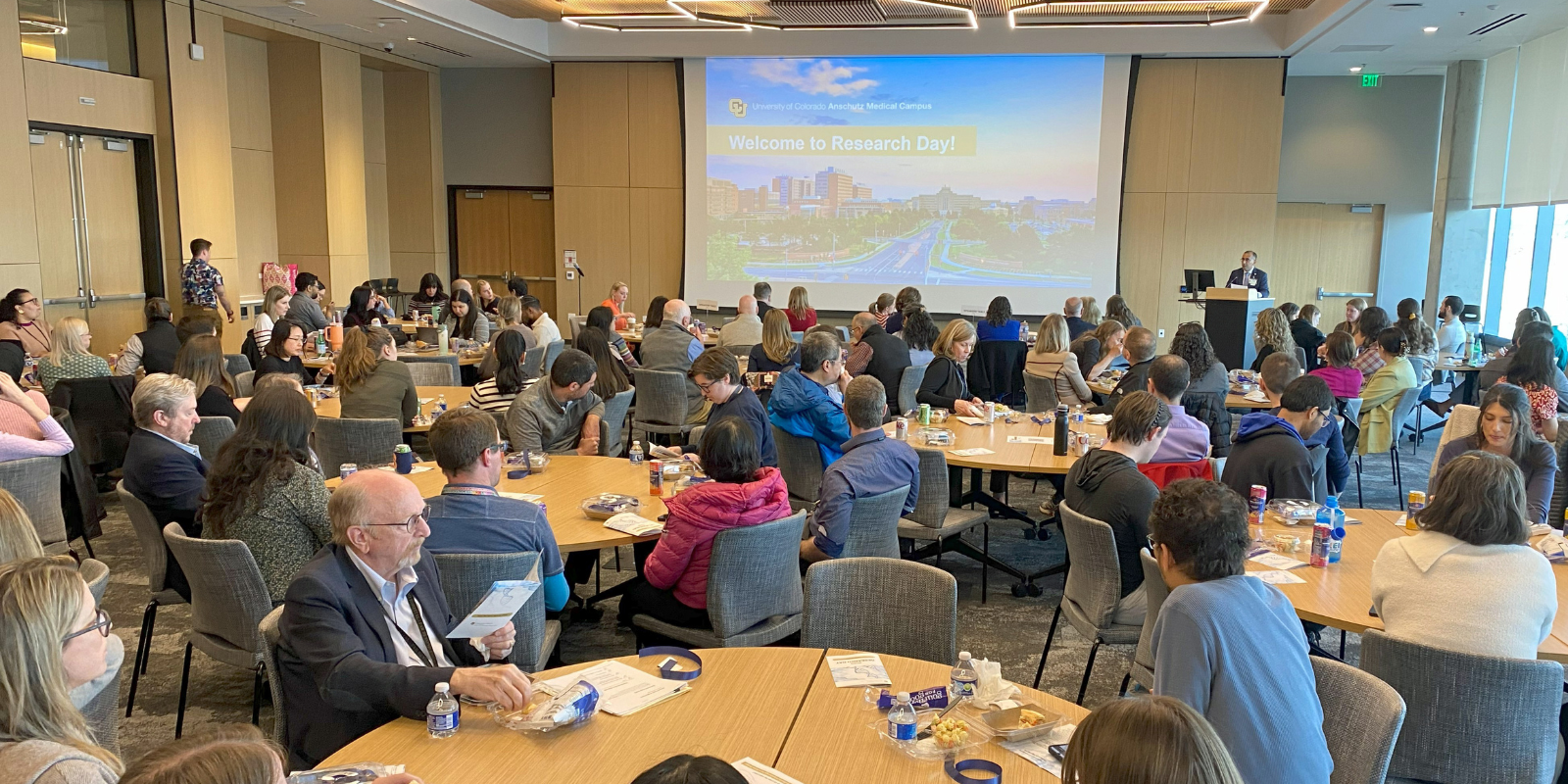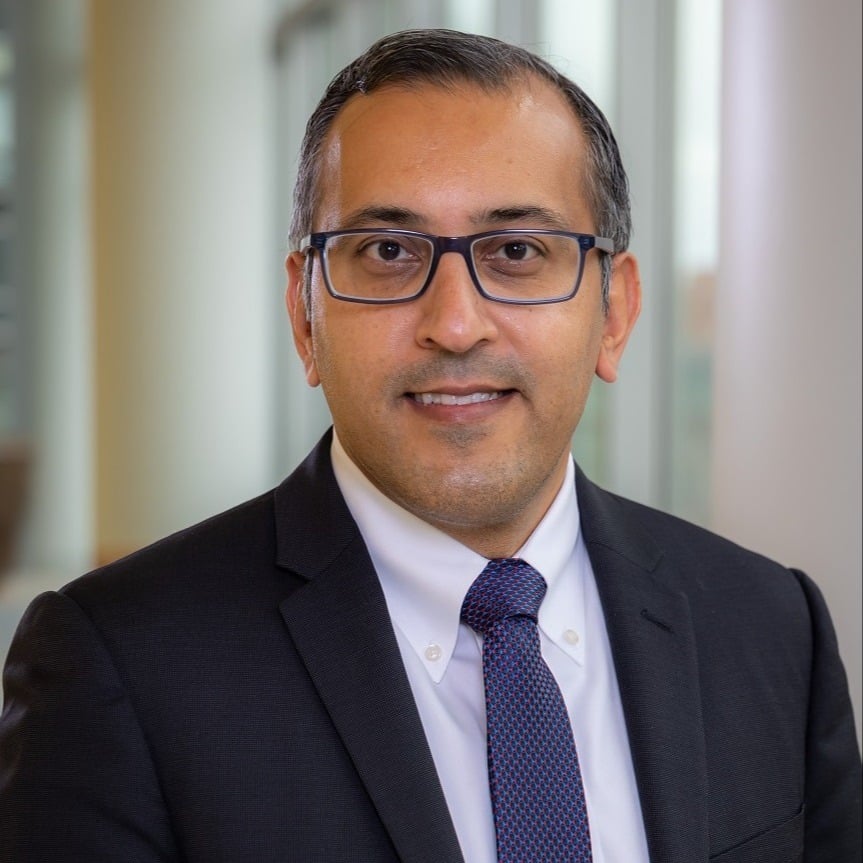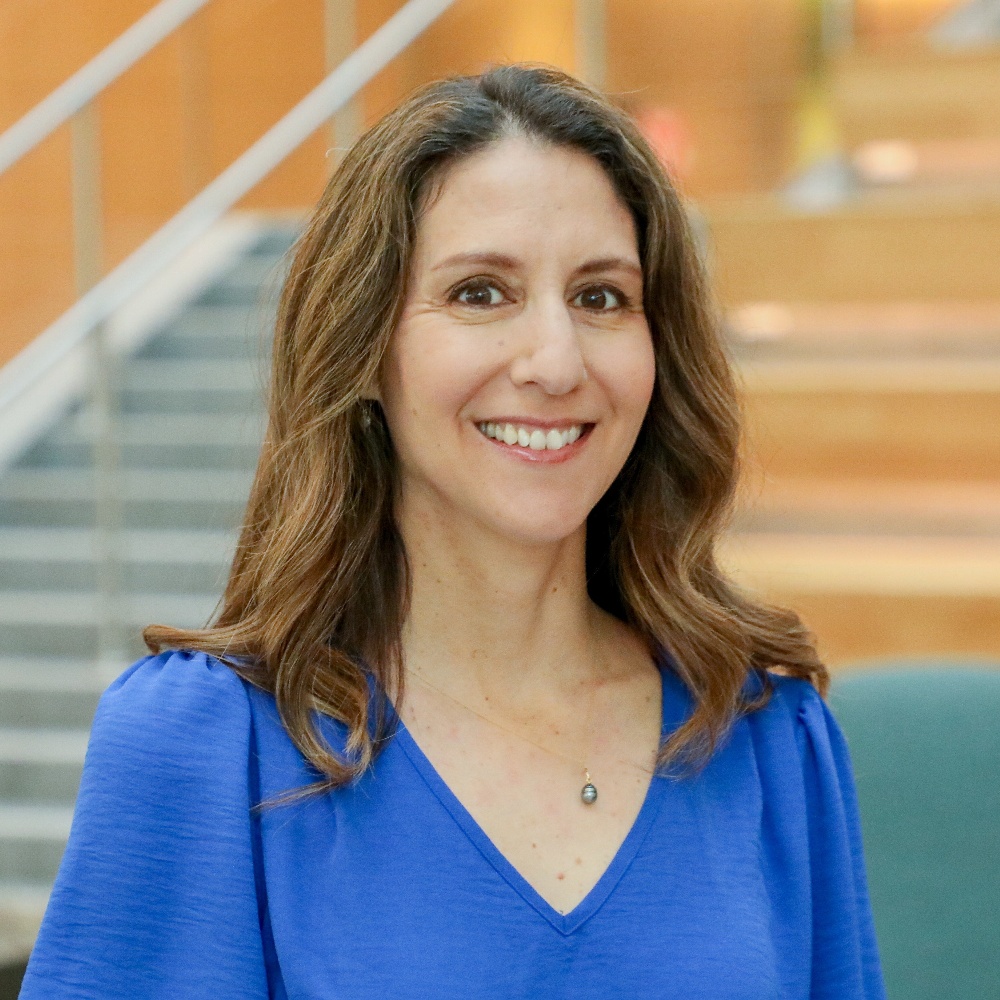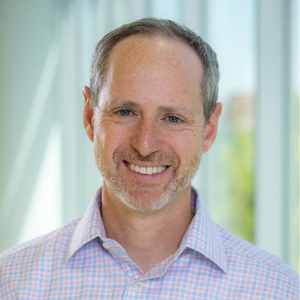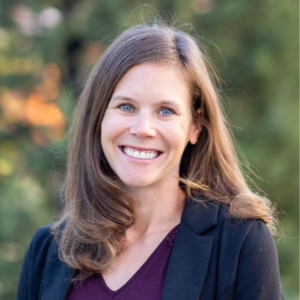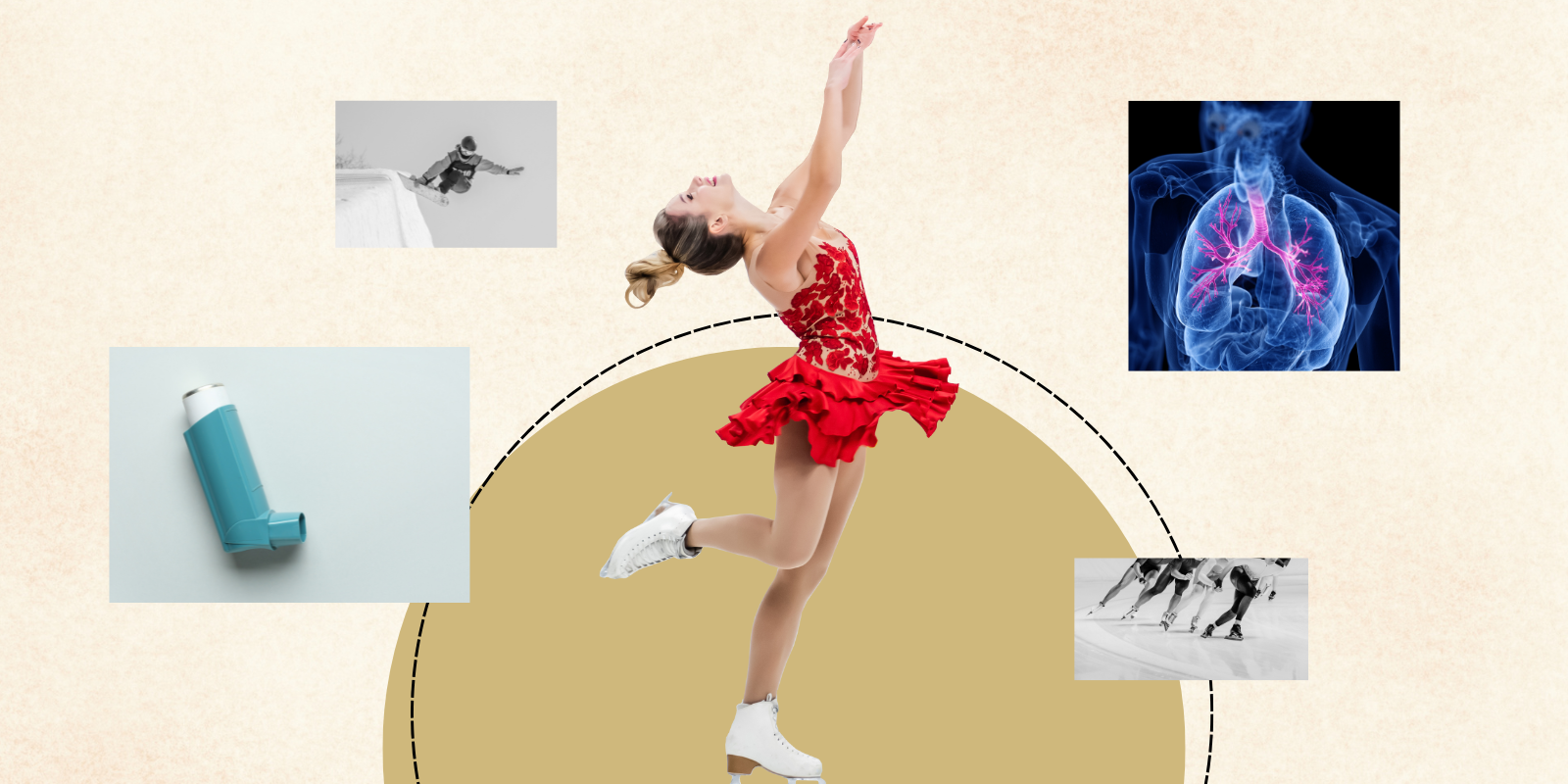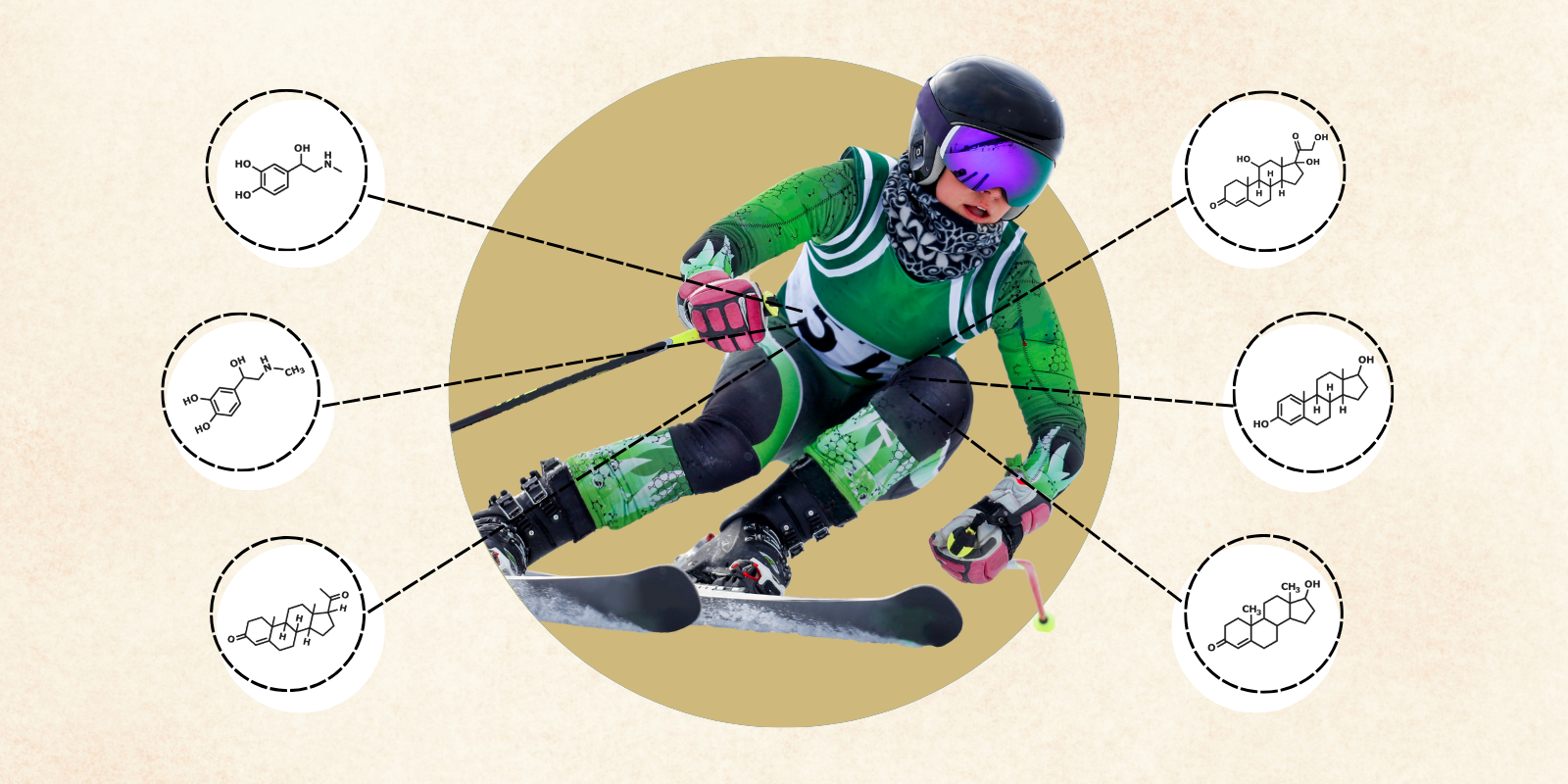In times of challenge and uncertainty, researchers at the University of Colorado Department of Medicine are forging ahead with their life-saving work, and several of them were invited to share their progress with colleagues and trainees at the department’s annual Research Day on April 14.
“This day is about more than posters and presentations. It’s about celebrating the heart of academic medicine: Inquiry, discovery, and the relentless pursuit of better answers for our patients,” department Chair Vineet Chopra, MD, MSc, told an audience of about 140 in opening the event at the Donald M. Elliman Conference Center.
It was a day for some of the department’s leading minds to share insights into their battles against disease, and for trainees and junior faculty to offer glimpses of their research work in a quick series of lightning talks and poster presentations. It also was an opportunity for busy medical explorers to network and share ideas.
“To me, research is how we move from what if to what’s next,” Chopra said. “It’s how ideas generate, it’s how treatments are transformed, it’s how outcomes are improved, and it’s how lives are changed. It is both deeply personal but also profoundly collective. Every step forward that we make is built on the foundation of what came before, by those who dare to ask tough questions.”
In the face of potential federal funding delays and tough choices over resources, Chopra acknowledged that “this is no easy time for research,” but he counseled persistence.
“While I recognize there are challenges, I firmly believe that we should not let them define us,” he told his colleagues. “Rather, just like a research problem, we have to find new ways to challenge the status quo.”
→ More on CU Department of Medicine research programs
During breaks in the main presentations, participants gathered to study rows of research posters and hear from young researchers about their work. (Several of the posters are presented in the slideshow at the end of this story.)

Researchers discuss their posters at the CU Department of Medicine Research Day on April 14, 2025. Photo by Mark Harden | CU Department of Medicine.
‘They made my post doc cry’
In a lively and entertaining keynote address, Serpil Erzurum, MD, executive vice president and chief research and academic officer at the Cleveland Clinic and a former CU fellow, told parallel stories about advances against asthma and pursuing a career in academic medicine.
Erzurum detailed various milestones in the treatment of asthma, from an era when steroids were widely considered the only treatment option, through her own research into nitric oxide as a potential biomarker for asthma, to the development of biologic treatments.
She recalled a poster presentation of her research years ago that triggered controversy: “There were people who absolutely hated my work. They made my post doc cry at the poster. Have you ever cried at your poster? You know they’re saying pretty bad things.”
Pivoting to challenges she faced in her own career journey, Erzurum presented a slide with a quote from Lily Tomlin: “The road to success is always under construction.” Some things in life are unknowable in advance, she said, and “the only way you can get to the future is by focusing on and making the most of each day.”

Presenters and organizers pose after the CU Department of Medicine Research Day on April 14, 2025. Photo by Mark Harden | CU Department of Medicine.
Four present highlights
Four CU Department of Medicine leaders offered highlights from their own research:
In a talk entitled, “It’s Not About the Scanner,” Jamie Studts, PhD, a professor and scientific leader of behavioral oncology in the CU Division of Medical Oncology, talked about lung cancer screening (in the form of low-dose CT scans) and the need to adopt a “person-centered approach” to engaging with the public on the need for screening.
Studts – also co-leader of the Cancer Prevention & Control Program at the CU Cancer Center –presented a slide showing far lower rates of lung cancer screening in recent years than for cervical, breast, and colorectal cancer. He said many eligible people aren’t getting screened for lung cancer for reasons that include low awareness of screening as well as “horribly wrong, very condescending messages that use fear, stigma, and shame” about smoking to convince people to be screened.
“That’s a fundamental misunderstanding of who we’re trying to serve with lung cancer screening in the eligible community,” he said. “That’s a failure to see that this community is vulnerable, at risk, and disengaged from our health care system.” He said community engagement, personalized approaches, and addressing stigma and financial concerns are needed to improve lung cancer screening adoption.
→ Studts to Co-lead Effort to Bost Lung Cancer Screening
Beth Tamburini, PhD, associate professor in the CU Division of Gastroenterology and Hepatology, presented on immune checkpoint inhibitors (ICIs), focusing on experiments demonstrating the impact of various ICIs on dendritic cell migration and potential applications in cancer and psoriasis treatments.
Dan Pollyea, MD, professor and clinical director of leukemia services in the CU Division of Hematology, provided an overview of acute myeloid leukemia (AML), its epidemiology, and the evolution of treatment methods over the past 50 years. He said that half-century was marked by slow change in treatments across the first 40 years and then a cascade of new treatments introduced in the last decade. Pollyea also offered updates on ongoing clinical trials exploring new therapeutic approaches for AML.
→ Pollyea Recognized for Research on Leukemia Stem Cells
Kristen Nowak, PhD, associate professor in the CU Division of Renal Diseases and Hypertension, presented on the relationship between excess body fat and autosomal dominant polycystic kidney disease (ADPKD), a genetic disorder causing cysts to form in the kidneys, leading to enlargement of the kidneys and potentially kidney failure. She talked of a pilot study comparing daily caloric restriction and intermittent fasting as strategies for slowing kidney growth in ADPKD patients, followed by an ongoing trial focusing on daily caloric restriction as a sustainable approach.
Lightning talks
In addition to the featured presentations, seven investigators – including a research professor, medical students, post-doctoral fellows, a resident, and a lab technician – presented brief lightning talks:
- Alpna Tyagi, PhD, assistant research professor, CU Division of Endocrinology, Metabolism and Diabetes – Honokiol Hexafluro as a Potential Therapeutic Agent for the Treatment of Alzheimer's Disease
- Timothy Jones, PhD, postdoctoral fellow, CU Division of Cardiology – Histone Deacetylase 8: A Novel Modulator of Myofybril Relaxation
- Zan Wynia, MPH, laboratory technician, CU Division of General Internal Medicine – Feasibility of Group Format Pain Reprocessing Therapy in Veterans with Chronic Back and Neck Pain
- Gabriela Ares, BS, medical student, CU Division of Rheumatology – Increased Sputum Monocyte Chemoattractant Protein (MCP)-1 Levels Are Associated with Transition from Pre-Clinical to Clinical Rheumatoid Arthritis
- Allison Nielsen, MS, medical student, CU Division of Hospital Medicine – Prevalence of Hiding Firearms Among Colorado Households with Firearms
- Justin Cillay, MS, resident, CU Division of Pulmonary Sciences and Critical Care Medicine – Pulmonary Vascular Response to High-Intensity Interval Training in Deployment-Related Respiratory Disease
- Sweta Patel, PhD, postdoctoral fellow, CU Division of Hematology – Nicotinamide Metabolism is Essential for Survival and Function of MDS Stem Cells
Photo at top: Vineet Chopra, MD, MSc, delivers opening remarks at the CU Department of Medicine Research Day on April 14, 2025. Photo by Mark Harden | CU Department of Medicine.
